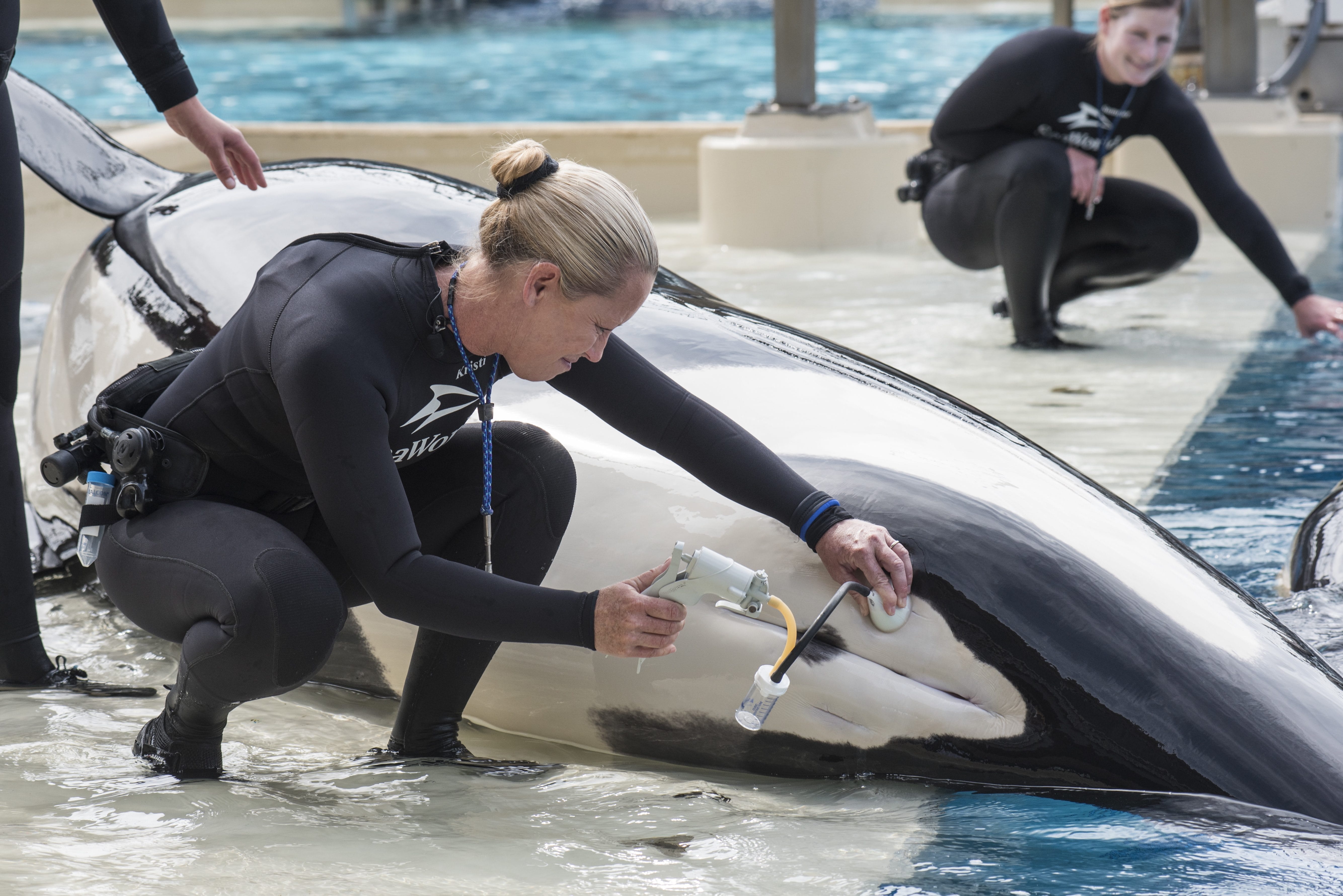ORLANDO, Fla. — There’s one last orca birth to come at SeaWorld, and it will probably be the last chance for research biologist Dawn Noren to study up close how female killer whales pass toxins to their calves through their milk.
While SeaWorld’s decision last month to end its orca breeding program delighted animal rights activists, it disappointed many marine scientists, who say they will gradually lose vital opportunities to learn things that could help killer whales in the wild.
Noren got to observe only one mother-and-calf pair at a SeaWorld park.
SeaWorld’s 29 orcas at its parks in Orlando, San Diego and San Antonio could remain on display for decades to come and will continue to be available for study by outside scientists, as they generally have been for many years.
But as SeaWorld’s orca population dwindles, researchers will lose chances to collect health data and make other observations, such as drawing blood, measuring their heart rates and lung capacity, and documenting their diets and their growth. As the animals age, scientists say, research will be limited to geriatric orcas.




